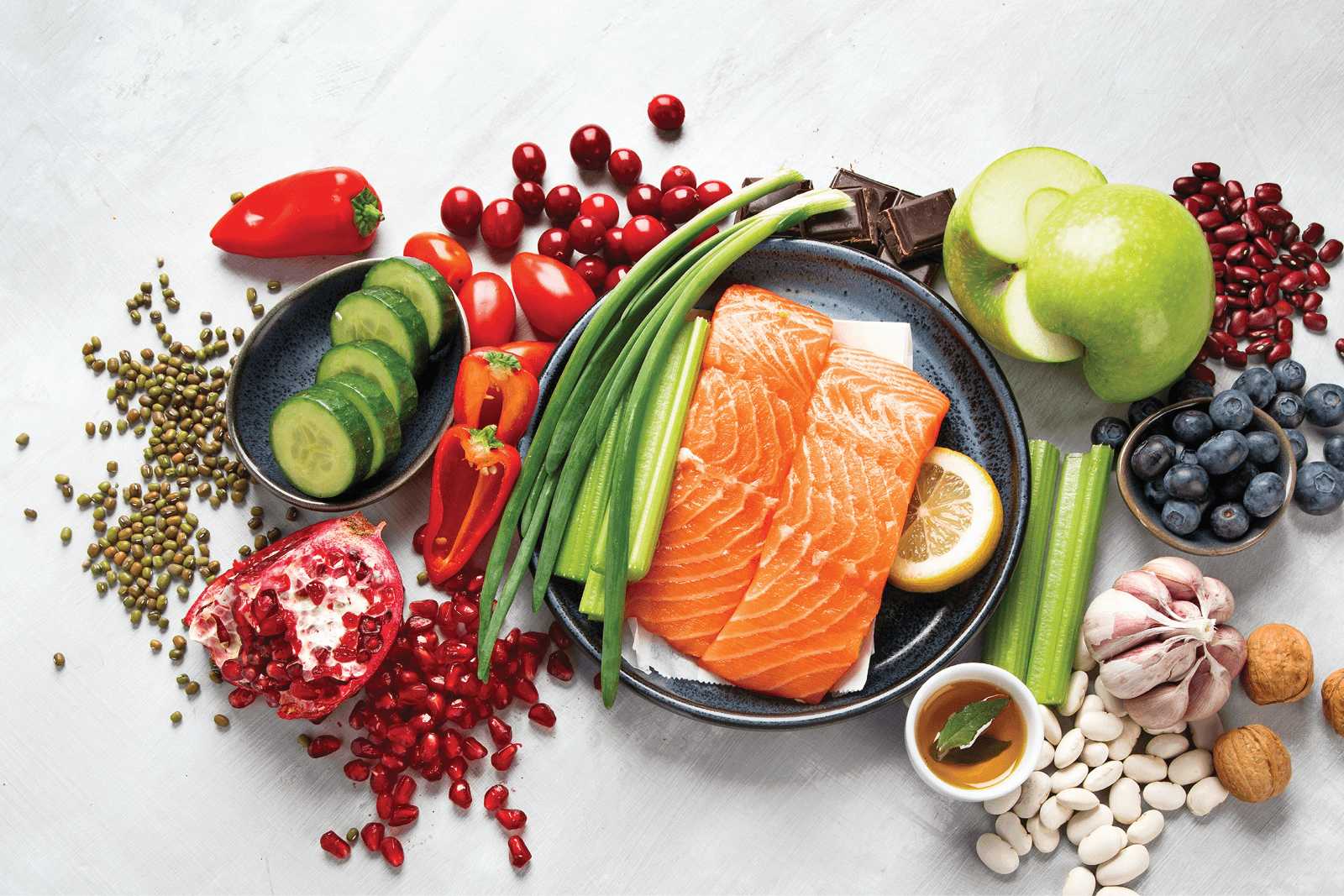Constipation, a common digestive issue, can be both uncomfortable and frustrating. It occurs when bowel movements become infrequent or difficult, often accompanied by straining. While various factors contribute to constipation, including lifestyle, lack of physical activity, and certain medical conditions, dietary choices play a significant role in regulating bowel movements. Incorporating foods that promote digestive health and alleviate constipation can be an effective and natural way to find relief. In this comprehensive guide, we’ll explore a variety of foods known for their constipation-relieving properties, their nutritional benefits, and how they contribute to a healthier digestive system.
Understanding Constipation and Its Causes
Before delving into the best foods for relieving constipation, it’s essential to understand the factors that contribute to this common digestive issue.
Causes of Constipation:
- Low Fiber Intake: Diets lacking in fiber can lead to constipation as fiber adds bulk to the stool and facilitates smoother bowel movements.
- Inadequate Hydration: Insufficient water intake can result in dry and hard stools, making them difficult to pass.
- Lack of Physical Activity: Regular exercise helps stimulate bowel movements and maintain overall digestive health.
- Ignoring the Urge to Defecate: Ignoring the natural urge to have a bowel movement can contribute to constipation over time.
- Certain Medications: Some medications, such as certain pain relievers and antidepressants, may cause constipation as a side effect.
- Medical Conditions: Conditions like irritable bowel syndrome (IBS), hypothyroidism, and diabetes can contribute to chronic constipation.
The Role of Diet in Relieving Constipation
Diet plays a pivotal role in maintaining regular bowel movements and preventing constipation. Including foods that are rich in fiber, hydration, and certain nutrients can help regulate digestion and alleviate constipation symptoms.
Dietary Strategies for Constipation Relief:
- Increase Fiber Intake: Dietary fiber adds bulk to the stool, softening it and promoting regular bowel movements.
- Stay Hydrated: Adequate water intake ensures that stools remain soft and easy to pass.
- Incorporate Healthy Fats: Healthy fats, such as those found in avocados and olive oil, can lubricate the intestines and aid in digestion.
- Consume Probiotics: Probiotics, found in fermented foods, support a healthy balance of gut bacteria, promoting digestive regularity.
- Mindful Eating: Chewing food thoroughly and eating at a relaxed pace can aid digestion and prevent constipation.
Best Foods for Relieving Constipation
Now, let’s explore a variety of nutrient-rich foods that are known for their constipation-relieving properties. These foods can be incorporated into a well-balanced diet to support digestive health and alleviate constipation symptoms.
1. Fiber-Rich Fruits
Fruits are excellent sources of dietary fiber, making them natural allies against constipation. Fiber adds bulk to the stool, softens it, and promotes regular bowel movements.
Best Fiber-Rich Fruits:
- Prunes: Prunes, or dried plums, are well-known for their natural laxative effect. They contain both soluble and insoluble fiber, as well as sorbitol, a natural sugar alcohol that helps soften stools.
- Apples: Apples are high in soluble fiber, particularly pectin, which helps regulate bowel movements.
- Berries (e.g., raspberries, strawberries): Berries are rich in fiber, antioxidants, and vitamins, contributing to digestive health.
2. Vegetables with High Fiber Content
Vegetables are another essential component of a constipation-relieving diet. They provide an array of nutrients and fiber to support digestive function.
Best Fiber-Rich Vegetables:
- Broccoli: Broccoli is a cruciferous vegetable rich in fiber and antioxidants, promoting overall digestive health.
- Carrots: Carrots are a good source of soluble fiber and contain compounds that support bowel regularity.
- Spinach: Spinach is high in fiber and contains magnesium, which helps soften stools.
3. Whole Grains and Cereals
Whole grains are integral to a fiber-rich diet, and their inclusion can significantly contribute to preventing constipation.
Best Whole Grains and Cereals:
- Oats: Oats are high in soluble fiber and can help regulate bowel movements.
- Quinoa: Quinoa is a versatile whole grain that provides both fiber and essential nutrients.
- Brown Rice: Brown rice contains more fiber than white rice, aiding in digestive regularity.
4. Legumes and Beans
Legumes and beans are excellent sources of plant-based protein and fiber, making them valuable additions to a constipation-relieving diet.
Best Legumes and Beans:
- Lentils: Lentils are rich in fiber, protein, and various essential nutrients that support digestive health.
- Chickpeas: Chickpeas provide a combination of fiber and protein, contributing to overall digestive well-being.
- Black Beans: Black beans are high in fiber and can help maintain healthy bowel movements.
5. Nuts and Seeds
Nuts and seeds are nutrient-dense foods that offer a combination of healthy fats, fiber, and essential minerals.
Best Nuts and Seeds:
- Chia Seeds: Chia seeds are rich in soluble fiber, which absorbs water and forms a gel-like consistency, aiding in digestion.
- Flaxseeds: Flaxseeds are high in soluble and insoluble fiber, supporting bowel regularity.
- Almonds: Almonds provide a balance of healthy fats and fiber, promoting digestive health.
Also, read about – The Best Brain Foods to Help You Stay Focused All Day Long
6. Hydrating Fruits and Vegetables
Hydration is crucial for maintaining soft and easily passable stools. Consuming fruits and vegetables with high water content contributes to overall hydration.
Hydrating Choices:
- Cucumbers: Cucumbers have high water content, contributing to hydration and promoting softer stools.
- Watermelon: Watermelon is not only refreshing but also contains a significant amount of water to support hydration.
- Oranges: Oranges are hydrating fruits that also provide fiber, aiding in digestion.
7. Healthy Fats
Incorporating healthy fats into the diet can help lubricate the intestines, making it easier for stool to move through the digestive tract.
Sources of Healthy Fats:
- Avocados: Avocados are rich in monounsaturated fats and fiber, promoting overall digestive health.
- Olive Oil: Olive oil, especially extra virgin olive oil, contains healthy fats that can support digestive lubrication.
- Fatty Fish (e.g., salmon, mackerel): Fatty fish provide omega-3 fatty acids, contributing to overall gut health.
8. Probiotic-Rich Foods
Probiotics are beneficial bacteria that support a healthy balance of gut flora. Including probiotic-rich foods in the diet can positively impact digestive function.
Best Probiotic-Rich Foods:
- Yogurt: Yogurt contains live cultures that contribute to a healthy gut microbiome and may help alleviate constipation.
- Kefir: Kefir is a fermented dairy product rich in probiotics that support digestive well-being.
- Kimchi and Sauerkraut: Fermented vegetables like kimchi and sauerkraut provide a natural source of probiotics.
Incorporating Constipation-Relieving Foods into Your Diet
While the foods mentioned above are known for their constipation-relieving properties, it’s essential to approach dietary changes gradually and ensure a balanced intake of nutrients. Here are some practical tips for incorporating these foods into your daily diet:
1. Create Balanced Meals:
Design meals that include a variety of constipation-relieving foods, ensuring a balance of fiber, healthy fats, and hydration.
2. Gradual Introductions:
Introduce new foods gradually to allow your digestive system to adjust. Sudden dietary changes can sometimes lead to discomfort.
3. Hydration:
Alongside fiber-rich foods, prioritize hydration. Drinking an adequate amount of water throughout the day is crucial for maintaining soft stools.
4. Meal Planning:
Plan your meals to include a mix of fruits, vegetables, whole grains, and lean proteins. This ensures a well-rounded and constipation-relieving diet.
5. Mindful Eating:
Practice mindful eating by chewing food thoroughly and savoring each bite. This can aid in the digestion process.
6. Consultation with Healthcare Providers:
If constipation persists or is accompanied by other concerning symptoms, consult with healthcare providers for personalized advice and potential underlying issues.
Conclusion: Nurturing Digestive Health with the Right Foods
Incorporating constipation-relieving foods into your diet is a proactive and natural approach to supporting digestive health. While these foods offer numerous benefits, it’s crucial to maintain a balanced and varied diet to ensure overall well-being. By embracing a diet rich in fiber, hydration, and essential nutrients, you can empower your digestive system to function optimally, promoting regular bowel movements and alleviating the discomfort associated with constipation. As always, individual responses to dietary changes vary, so it’s advisable to consult with healthcare professionals for personalized guidance on managing constipation and maintaining digestive health.





